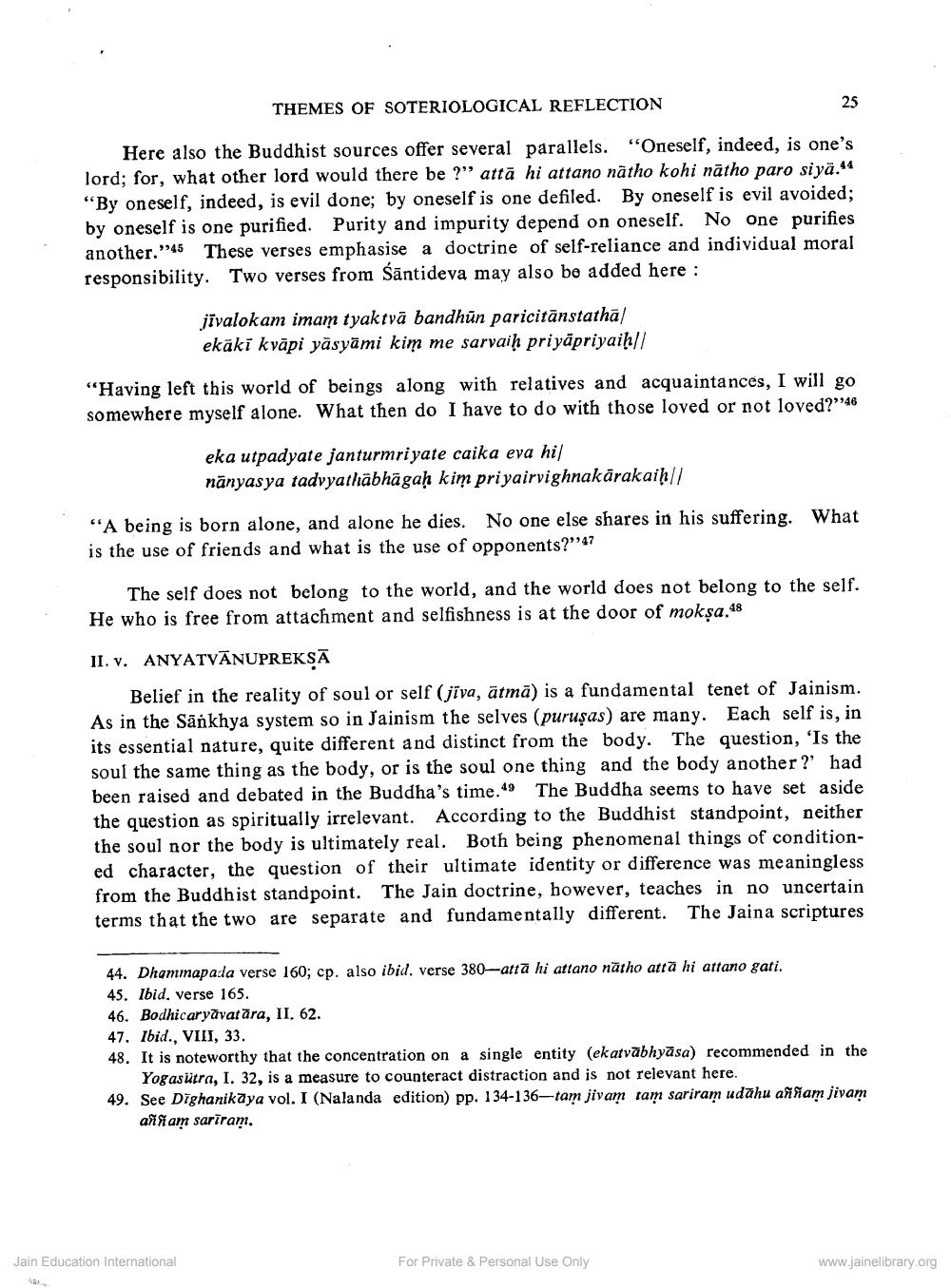________________
THEMES OF SOTERIOLOGICAL REFLECTION
25
Here also the Buddhist sources offer several parallels. “Oneself, indeed, is one's lord; for, what other lord would there be ?” attā hi attano nātho kohi nātho paro siyä.44 "By oneself, indeed, is evil done; by oneself is one defiled. By oneself is evil avoided; by oneself is one purified. Purity and impurity depend on oneself. No one purifies another.”45 These verses emphasise a doctrine of self-reliance and individual moral responsibility. Two verses from śāntideva may also be added here :
jivalokam imam tyaktvā bandhūn paricitānstatha/ ekäki kvāpi yāsyāmi kim me sarvaih priyapriyaiḥ//
“Having left this world of beings along with relatives and acquaintances, I will go somewhere myself alone. What then do I have to do with those loved or not loved?'°46
eka utpadyate janturmriyate caika eva hi/ nānyasya tadvyathābhāgaḥ kim pri yairvighnakärakaih//
“A being is born alone, and alone he dies. No one else shares in his suffering. What is the use of friends and what is the use of opponents?”:47
The self does not belong to the world, and the world does not belong to the self. He who is free from attachment and selfishness is at the door of mokşa.48
11. v. ANYATVĀNUPREKSĀ
Belief in the reality of soul or self (jīva, ātmā) is a fundamental tenet of Jainism. As in the Sānkhya system so in Jainism the selves (puruṣas) are many. Each self is, in its essential nature, quite different and distinct from the body. The question, 'Is the soul the same thing as the body, or is the soul one thing and the body another?' had been raised and debated in the Buddha's time.49 The Buddha seems to have set aside the question as spiritually irrelevant. According to the Buddhist standpoint, neither the soul nor the body is ultimately real. Both being phenomenal things of conditioned character, the question of their ultimate identity or difference was meaningless from the Buddhist standpoint. The Jain doctrine, however, teaches in no uncertain terms that the two are separate and fundamentally different. The Jaina scriptures
44. Dhammapada verse 160; cp. also ibid. verse 380-attā hi attano nātho attā hi attano gati. 45. Ibid. verse 165. 46. Bodhicaryāvatāra, II. 62. 47. Ibid., VIII, 33. 48. It is noteworthy that the concentration on a single entity (ekatvābhyāsa) recommended in the
Yogasutra, I. 32, is a measure to counteract distraction and is not relevant here. 49. See Dīghanikāya vol. I (Nalanda edition) pp. 134-136-tam jivam tam sariram udahu anham jivam
ann am sarīram.
Jain Education International
For Private & Personal Use Only
www.jainelibrary.org




